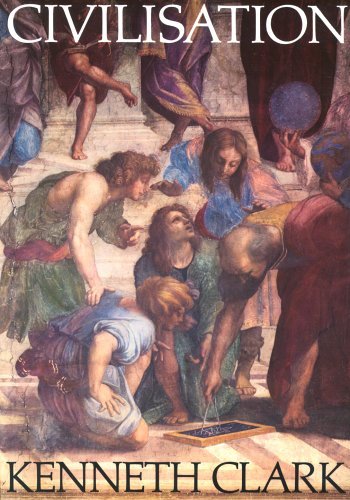What do you think?
Rate this book


360 pages, Paperback
First published January 1, 1969
I wonder if a single thought that has helped forward the human spirit has ever been conceived or written down in an enormous room

The early pictures of heavy industry are optimistic. Even the workers didn't object to it because it was hellish but because they were afraid that machinery would put them out of work.
The only people who saw through industrialism in those early days were the poets... It took a longish time -- over twenty years -- before ordinary men began to see what a monster had been created.
...
Early iron foundries had been small affairs -- almost family businesses -- and in its early stages the industrial movement had positively helped small men to escape from the more hopeless poverty of rural life. What was destructive was size. After about 1790 to 1800 there appeared the large foundries and mills which dehumanized life. Arkwright's spinning frame, invented about 1700, is always quoted as the beginning of mass production ... he and his like gave England a flying start in the economy of the nineteenth century, but they also produced that dehumanization which obsessed almost every great imaginative writer of the time...
This new religion of gain had behind it a body of doctrine without which it could never have maintained its authority over the serious-minded Victorians. The first of its sacred books -- printed in 1789 -- was the Essay on the Principle of Population by a clergyman named Malthus, which demonstrated that population will always increase faster than means of subsistence. In consequence, misery and want were bound to be the lot of the majority of mankind. This depressing theory, which cannot be altogether brushed aside, even today, had been put forward in a scientific spirit. Unfortunately Malthus' text contained such phrases as 'man has no claim of right to the smallest portion of food'. And these were used to justify the inhuman exploitation of labour. The other sacred books were the economic theories of Ricardo, almost a most earnest man writing in a scientific spirit -- but inexorable. Free enterprise and the survival of the fittest: one can see how they looked like laws of nature -- and in fact were both to become involved with Darwin's theories of natural selection.
When I call them sacred books I am not joking. Malthus and Ricardo were taken as gospels by the most serious and even pious men, who used them to justify actions they would never thought of defending on human grounds.
...
The early reformers' struggle with industrialised society illustrates what I believe to be the greatest civilising achievement of the nineteenth century: humanitarianism. We are so much accustomed to the humanitarian outlook that we forget how little it counted in earlier ages of civilisation. Ask any decent person in England or America what he thinks matters most in human conduct: five to one his answer will be 'kindness'. It's not a word that would have crossed the lips of any of the earlier heroes of this series... Our ancestors didn't use the word, and they did not greatly value the quality -- except perhaps in so far as they valued compassion. Nowadays, I think we under-estimate the humanitarian achievements of the nineteenth century. We forget the horrors that were taken for granted in early Victorian England: the hundreds of lashes inflicted daily on perfectly harmless men in the army and navy; the women chained together in threes, rumbling through the streets in open carts on their way to transportation. These and other even more unspeakable cruelties were carried out by agents of the Establishment, usually in defence of property.
I said at the beginning that it is lack of confidence, more than anything else, that kills a civilisation. We can destroy ourselves by cynicism and disillusion, just as effectively as by bombs. [Ed.: Witness the complete abdication of responsibility by both the Democratic Party and Congress in the face of Donald Trump's first six months of action.]
... Good people still have convictions, rather too many of them. The trouble is that there is still no centre. The moral and intellectual failure of Marxism has left us with no alternative to heroic materialism, and that isn't enough. One may be optimistic, but one can't exactly be joyful at the prospect before us.